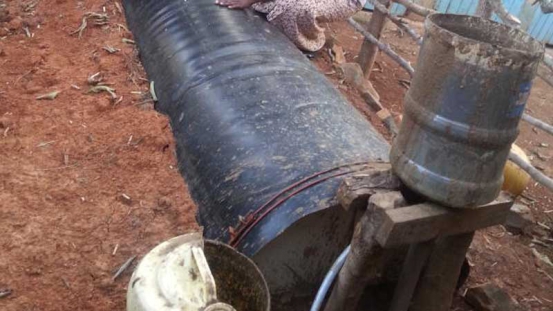×
The Standard e-Paper
Join Thousands Daily

Rehau Home Gas is a low maintenance unit made up of a cylindrical, mini-biogas unit running on cow dung and water
It is the desire of every household to access cheap and clean energy. That is a reality now. Researchers from Jomo Kenyatta University of Agriculture and Technology (JKUAT) have developed a cheap and reliable form of energy that will cut use of firewood.